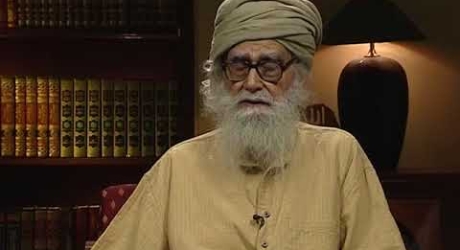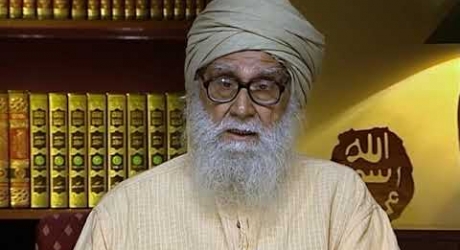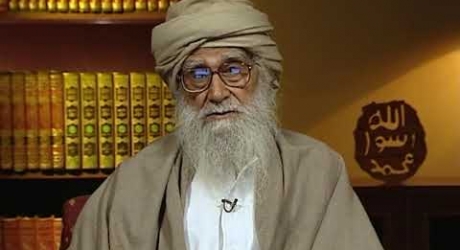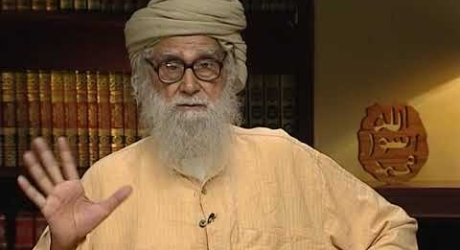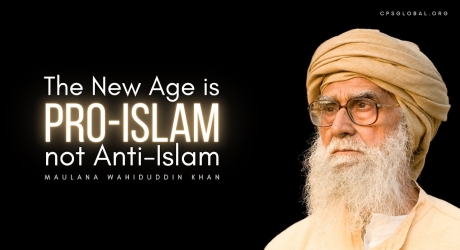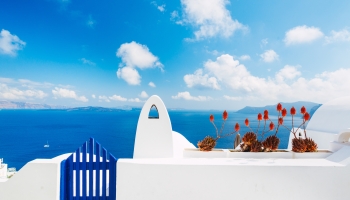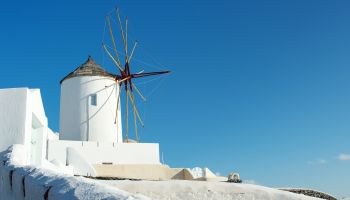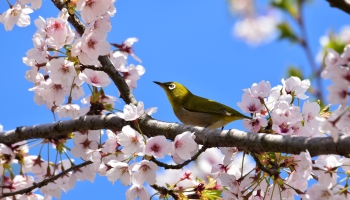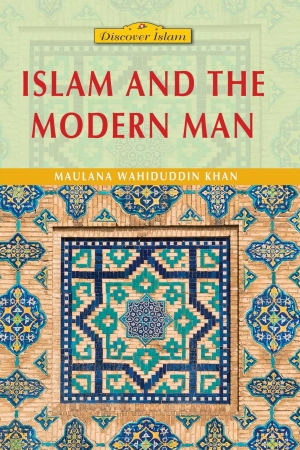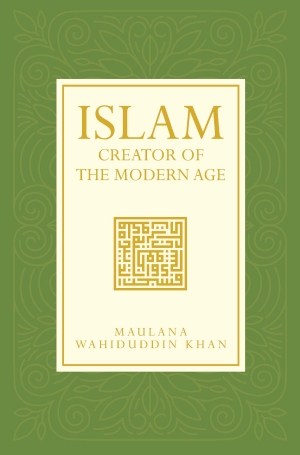Islam is the name of the eternal ideology that has been preserved forever in the Quran and Prophetic Sunnah. It provides guidance for humanity for all times to come. However, as the classic Islamic literature presented Islam in a traditional style, it did not address people’s minds in the modern age. The real issue was that Islam was being presented in a traditional style by scholars, whereas modern educated people thought along scientific lines. As this traditional style does not address the modern scientific mind, an intellectual gap is formed between Islam and modern minds. It is as if the traditional interpretation of Islam in the modern scientific age is like the veiling of the sun.
Maulana presented the basic teachings of Islam in a manner consistent with modern scientific methods. He concluded that the key religious teachings, such as the existence of God, the Hereafter, prophethood, the veracity of the Quran, and a God-oriented understanding of the purpose of life, are as valid, understandable, and intellectually acceptable as any of the theories propounded by science. A seeker of Truth can believe in them just as he believes in other realities of life. The picture of life and the universe that takes shape in our minds on accepting religious truths is a very meaningful and purposeful one. This establishes the truth of God-centred religion—Islam—in the same way as the material universe echoes in mathematical formulae.
Maulana presented Islam as it is enshrined in its original sources—the Quran, Sunnah, and Seerah in the modern idiom by engaging in ijtihad, re-applying Islamic injunctions through creative thinking to present times. Placing Islamic concepts in their proper perspective, he removed misconceptions about the religion and presented Islam as it is in the modern idiom by providing rational arguments for its support. This became like making Islam shine bright like the sun once again. Islam, as it is in the modern idiom, addresses modern minds, and helps people understand God-centred religion. The literature and talks of Maulana Wahiduddin Khan not only demonstrate the relevance of Islam in the modern age, especially in the 21st century but also present the modern age as the age of peace and opportunities. Maulana explained that through long planning the Creator had brought about a revolution in human history that brought the age of war to an end. In this way, it had become possible by using peaceful means to achieve one’s positive goals in a far better way than by using violent means.
Featured Articles
Featured Videos
Sub Themes
FAQs
The answer is totally in the affirmative. The very fact that Islam is a religion of peace shows that it is an eternal religion. If it had been otherwise, it would not have endured. For in this day and age, according to modern thinking, the use of violence has been totally rejected. Now the human mind finds acceptable or worthy of consideration only that system the teachings of which are based on peace and non-violence. Islam is a religion of nature and has always been an upholder of peace. For this reason, violence and extremism have been held totally undesirable from day one. For human construction, Islam has played a great role as a result of which human history entered a new phase of progress and development. The time has come today for Islam to play its constructive role once again and lead human history into a new phase of progress.
Source: The Life of Prophet Muhammad
As women performed their role without going outdoors, there is a general misconception that Islam has restricted women’s workplaces to performing only domestic chores. But this is not the truth. First of all, Islam encouraged them to receive education, and then enthused them with a new zeal. Subsequently, they went out to impart this learning to the next generation. Let us take the instance of the Prophet’s wives, held up as role models for women in Islam. Preserving their femininity, they participated in all kinds of religious and worldly activities. For instance, the Prophet’s wife Aisha, having gained full knowledge of Islam from the Prophet, was able, after the death of the Prophet, to perform the task of teacher and guide to the Muslim community for about fifty years. Abdullah ibn Abbas, a Companion of great stature, and one of the best commentators of the Quran, was one of Aisha’s pupils.
As modern-day research tells us women are better with words than men. It is perhaps this reason that they can run educational institutions successfully. Besides this, there may be many such workplaces where women can exploit their full potential. Since the earliest days of Islam, we find Muslim women working outdoors. Umm Dahdah, wife of a Companion of the Prophet worked in her orchard. Khadija, Prophet’s wife conducted business, to cite only a few of such examples. However, Islam sets great value on the proper management of the home. It is because the home is the most important unit of any society. Home is the centre of preparing succeeding generations. Thus, neglecting the home front will amount to neglecting the next generation which in turn will result in a great national loss.
Source: The True Face of Islam
The modernization of the madrasa today is not simply a theory. In several madrasas, it is already an ongoing process. For example, Darul Uloom of Deoband and Jamia al-Hidayah of Jaipur have included in their curriculum what is called asari uloom (modern learning). These madrasas as well as several other madrasas of India have adopted different modern (jadid) disciplines, such as computer training, English and Hindi languages, etc.
According to madrasa authorities, its modernization is not taboo. The only problem is that the madrasa system, unlike secular institutions, has no training institution to feed its job requirements. According to my experience, if there were training institutes, then perhaps all madrasas would incorporate asari uloom (modern learning).
There is a well-known saying, ‘Necessity is the mother of invention.’ This saying has proved true in the case of madrasas also. There is a demand for the madrasa educated to be equipped with modern skills so that they may secure their place in the job market: the madrasa system is making every endeavour to address this need of the hour.
Along with this, there is a silent process going on, which may be called ‘out-of-campus education.’ Students of madrasas found that outside of the madrasa campus, there was a widespread system of secular education. After completing madrasa education, students are joining these institutions in great numbers. Thus, the out-of-campus system of education is providing a complementary role in this regard.
There are thousands of Muslim youths who were educated in some madrasa and obtained degrees from these madrasas but when they attempted to commence their working lives, they felt that they were under-equipped to cope with the real-life situations with which they were faced. So after completing their madrasa education, they made every effort to learn the English language, computer operation, elementary sciences, etc. Maulana Wahiduddin Khan also comes in this category. He received his education in a madrasa and then he learnt English and privately studied almost all the branches of modern learning. His madrasa education laid the foundation of his religious education. His personal study made him understand modern thought. Over a lifetime of study and scholarship, he was able to prepare a corpus of literature presenting Islam in the modern idiom.
Source: The True Face of Islam
Islam gives total religious freedom to people. According to Islamic teaching, the present world is a testing ground for individuals, it is not a place of enforcement of commands. In the present world, people are being put to the test to see whether they use their freedom to follow the straight path as determined by God or deviate from it. Due to this reason, every human being has been granted complete freedom so that he may have the choice to either accept the divine religion or reject it. This reality about our present life has been stated in the Quran in these words: “Say, this is the truth from your Lord. Let him who will, believe in it, and him who will, deny it.” (18:29).
Another verse instructs the Prophet concerning his contemporaries who were in denial of his prophethood: “You are not a keeper over them.” (88:22). The Prophet is here counselled not to compel people to believe in the message he was conveying to them. For this reason, a principle has been mentioned in the Quran in clear terms:
“There shall be no compulsion in religion: true guidance has become distinct from error. But whoever refuses to be led by Satan and believes in God has grasped the strong handhold that will never break. God is all hearing and all knowing.” (2:256)
Contemplating on these Quranic verses, one can conclude that Islam believes in giving religious freedom to everyone. Religious coercion has nothing to do with Islam.
Source: The Spirit of Islam Magazine


